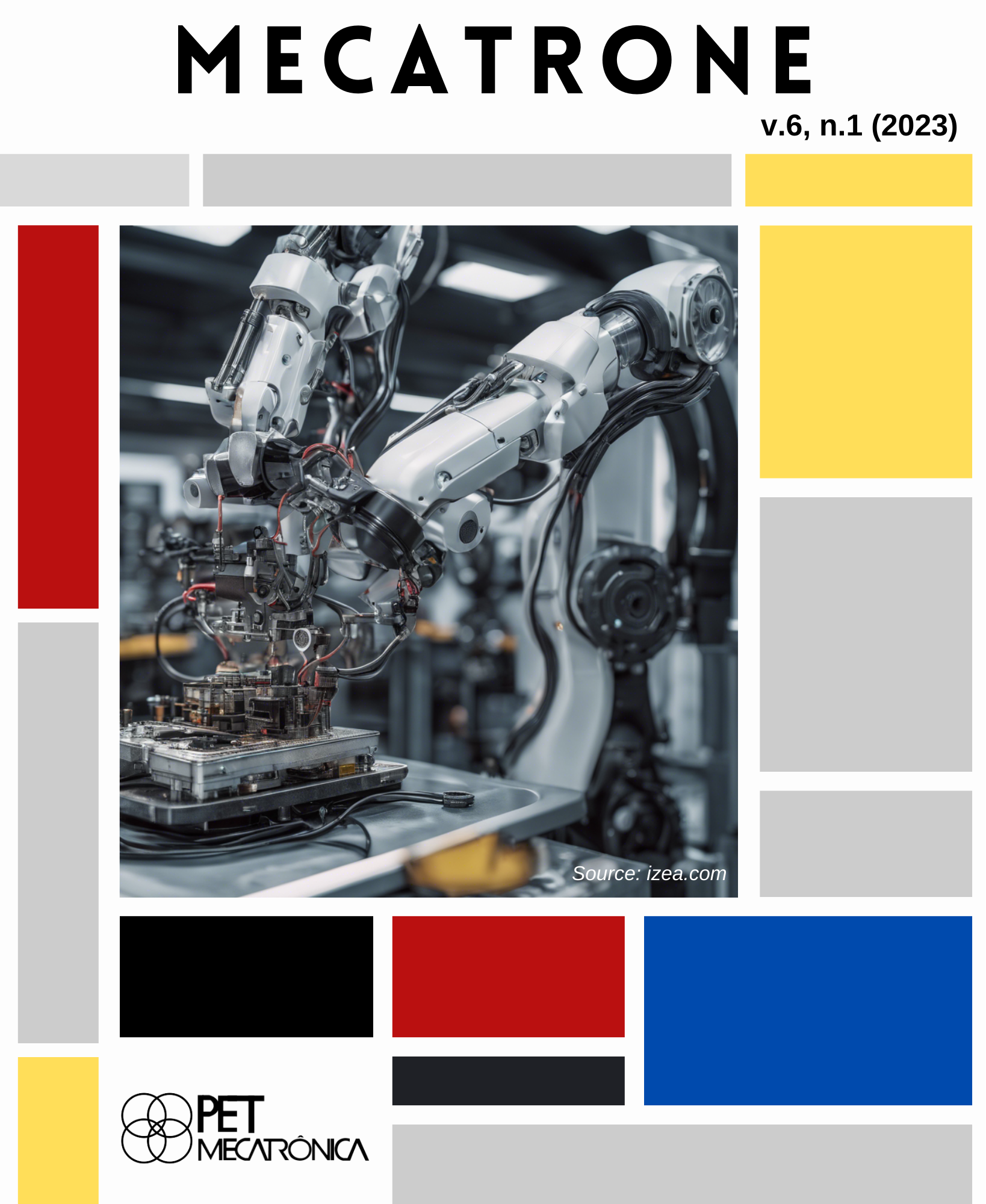E-cycle: sistema seletor de recicláveis
DOI:
https://doi.org/10.11606/issn.2526-8260.mecatrone.2023.220281Palabras clave:
Coleta seletiva, Recicláveis, Rede de Petri, Controle Programável, Sistemas a Eventos DiscretosResumen
O processo de seleção de materiais recicláveis envolve a identificação e classificação de materiais de acordo com sua característica e sua condução até seus respectivos recipientes. Para automatizar esse processo, pensou-se em um sistema de esteira transportadora que, com a presença de sensores, direciona o resíduo para seu respectivo coletor. A solução permite que esse processo de classificação de materiais presente em campos voltados para a sustentabilidade, como a reciclagem, seja otimizado e também que o trabalho humano envolvido nessa etapa seja dotado de maior inclusão. Como há emprego de mão de obra, trata-se de um sistema que não é totalmente independente. Considerando o sistema completo com todas as sub redes de intertravamentos, tem-se um total de 22 entradas e 11 saídas controladas e o processo será modelado utilizando a metodologia Production Flow Schema (PFS) para obtenção de uma rede de Petri (RdP), apresentada no formato de rede interpretada, associando sinais de entrada às transições e saídas aos lugares. O modelo de controle será validado através da verificação de boas propriedades de RdP utilizando um software como ferramenta e do comportamento da rede em termos dos estados alcançados ao longo de uma simulação. Para programação do controlador será utilizado Ladder, com a lógica do processo dada pela disposição vertical de rungs, obtidos através da conversão da rede de Petri por isomorfismo. Por fim, comparou-se os comportamentos observados na rede de Petri e no Ladder desse sistema para avaliar a coerência do mesmo e os resultados foram alinhados com o esperado.
Descargas
Referencias
Fattori, C.C.; Kano, C.H.; Jorge, A. A.; Junqueira, F.; Miyagi, P.E. Rede de Petri e o aplicativo Platform Independent Petri net Editor (PIPE). Apostila, PMR, Escola Politécnica da Universidade de São Paulo, São Paulo, 2020.
Filho, D. J. S. Controladores Programáveis. Material de aula, PMR, Escola Politécnica da Universidade de São Paulo, São Paulo, 2023.
Miyagi, P.E. Controle programável. São Paulo: Editora Blucher, 1996, 194p.
Associação Brasileira de Resíduos Sólidos e Limpeza Pública. Revista Limpeza Pública. Automação na Reciclagem. 86ª edição, São Paulo, 2014. Disponível em http://www.ablp.org.br/revista-limpeza-publica/
Descargas
Publicado
Número
Sección
Licencia
Derechos de autor 2023 Eduardo Araujo, Vítor Viana, Miguel Marques

Esta obra está bajo una licencia internacional Creative Commons Atribución-NoComercial-CompartirIgual 4.0.


